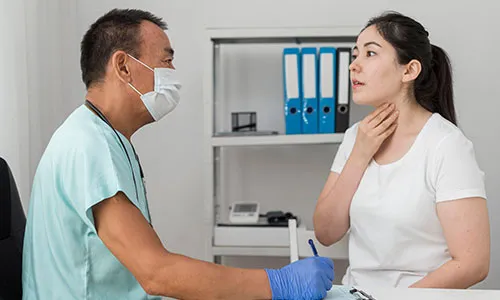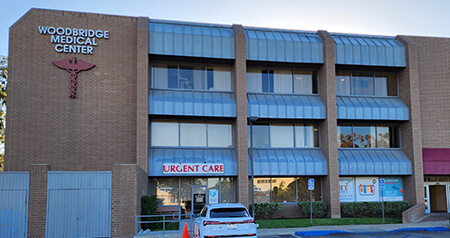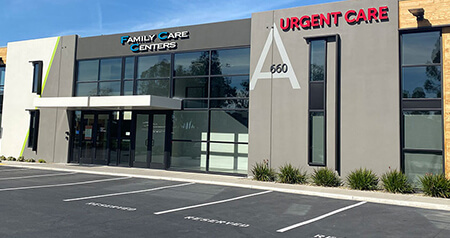

Family Care Centers is now MemorialCare Medical Group. Call us 24/7 at (877) 696-3622 or visit memorialcare.org/providers for more info.

Mononucleosis, known as “mono,” is an illness usually caused by the Epstein-Barr virus (EBV). It's commonly known as the "kissing disease" because it spreads through saliva exchange and usually affects young adults and teenagers. Each year, there are over 100,000 reported cases of mononucleosis, with 90% of them attributed to EBV.
If you're experiencing mononucleosis symptoms, visit one of our Family Care Centers Medical Group offices in Orange County, CA. We provide guidance and treatment at our walk-in urgent care clinics. Our clinics are open seven days a week, allowing you to receive healthcare services on a walk-in or time reservation basis.
The Epstein-Barr virus is the main cause of mononucleosis, and is among the most prevalent viruses globally.
The stages are as follows -
There is no specific mononucleosis medication at this time. Fortunately, this infection usually resolves on its own; treatment is mainly supportive, focusing on relieving symptoms, preventing complications, and supporting the body's natural healing process:

At Family Care Centers Medical Group , our healthcare providers can check whether you are experiencing a mononucleosis infection, including a rapid office test that can confirm the diagnosis.
Contact us today if you are searching for the best and most affordable urgent clinic for mononucleosis treatment in Orange County, CA. We also serve nearby Orange County communities, including Tustin, Santa Ana, Costa Mesa, and Huntington Beach.
Yes, urgent care can diagnose and treat mononucleosis (mono). Our medical team can evaluate your symptoms, perform necessary tests, and provide symptom management to help you recover.
The most common symptoms of mononucleosis include fatigue, sore throat, fever, swollen lymph nodes, and swollen tonsils. Some individuals may also experience headaches, body aches, and a rash.
Mono is typically diagnosed through a combination of physical examination and blood tests. The doctor will evaluate your symptoms and may perform a rapid test to detect antibodies specific to the Epstein-Barr virus, the most common cause of mono.
Yes, a blood test is often required to confirm a diagnosis of mono. The test detects antibodies or elevated white blood cell counts that indicate an infection with the Epstein-Barr virus. However, your doctor may also diagnose based on symptoms and a physical exam.
Yes, mono is contagious and spreads through saliva, as well as through other bodily fluids. It is recommended to stay home and avoid close contact with others until your symptoms improve and you feel well enough to resume normal activities. This may take 1-2 weeks, but it can vary from person to person.
Yes, FCCMG Urgent Care can provide symptom relief for mono. While there is no cure for the virus, treatment focuses on managing symptoms. This may include pain relief, fever reduction, and recommendations for rest and hydration to support your recovery.
Recovery from mononucleosis typically takes 2 to 4 weeks, though some people may feel fatigued for several months. Rest is crucial during this time, and you should avoid strenuous activities to prevent complications.
You can visit urgent care if you are unable to see your primary doctor immediately. Urgent care can diagnose and manage mono symptoms, especially if you need prompt relief for discomfort. However, if your symptoms persist or worsen, your primary care doctor may provide additional follow-up care.
Yes, children and teens with mono can be treated at urgent care. Our medical professionals are experienced in diagnosing and managing mono in younger patients and will provide age-appropriate care to help alleviate symptoms.
Complications from mono are rare but can include an enlarged spleen, liver problems, jaundice, or a secondary bacterial infection. If you experience severe abdominal pain, yellowing of the skin or eyes, or difficulty breathing, seek immediate medical attention.

We're Open Every Day!
Mon - Fri:
8AM - 8PM
Weekends & Holidays: 8AM - 5PM

We're Open Every Day!
Mon - Fri:
8AM - 8PM
Weekends & Holidays: 8AM - 5PM